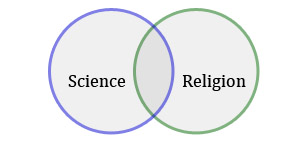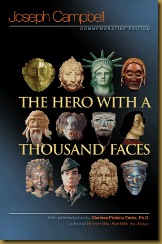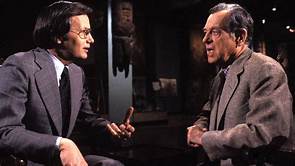Joseph Campbell from the lecture Mythology and the Individual: Volume 1 (Joseph Campbell Audio Collection) [edited; any transcription errors are mine].

“The image of the cosmos must change with the development of the mind or else man becomes dissociated. All of the great traditions and little traditions in their own time were scientifically correct . . . for that age. There must be a scientifically validated image [in religion]. It was actually the religious community that rejected the scientific community–in the 17th century. This divorce is a fatal thing and a most unfortunate thing and totally unnecessary thing. There is no reason whatsoever for clinging to the literal reading of a scientific statement that is 4000 years old. It must be read another way. There is something else being said there which is lost if you either hang on to the old science or reject it.”

